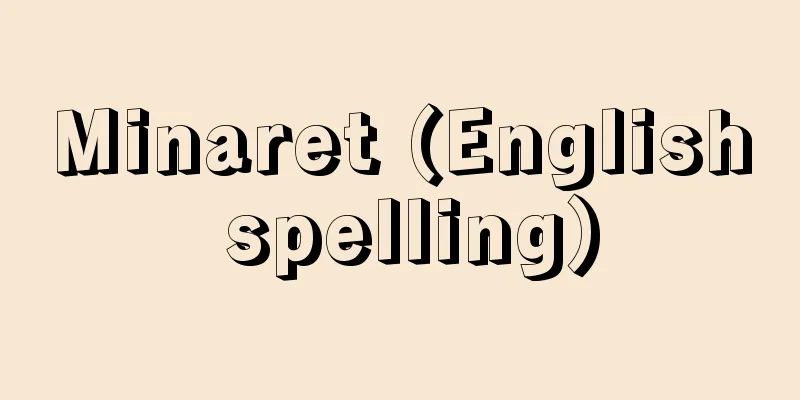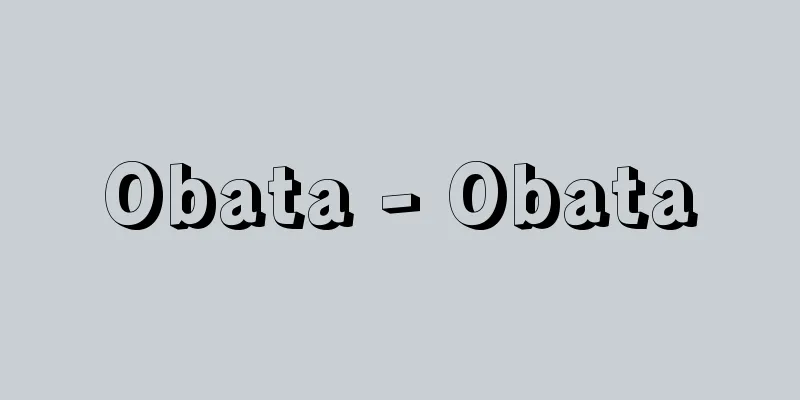Direct billing - direct billing

|
This system was established to give residents of local governments the opportunity to directly participate in politics, and is stipulated in the Local Autonomy Law based on the principle of direct democracy. The management of wide-ranging, complex and diverse local politics must be based on the representative democracy method, which leaves it to the assembly, which is the representative of the residents, but it is necessary to provide a way for local residents to directly express their will in response to requests for resident autonomy based on the "principle of local autonomy." From this perspective, the Local Autonomy Law stipulates the system of direct petition as such a system (Articles 12, 13, and 74-88). Direct petitions are made by a representative of a certain number of eligible voters who have signed the petition together, and not by individual residents (individual residents can file a resident lawsuit). Furthermore, strict regulations are imposed on signature campaigns to prevent their abuse. [Masaaki Ikeda] Direct billing typeThere are four types of requests: requests to enact, amend or repeal ordinances, requests for an audit of administrative affairs, requests for the dissolution of the assembly, and requests for the dismissal of assembly members, the mayor, other officials and various committee members. [Masaaki Ikeda] Request for the establishment, amendment or repeal of ordinancesAt first, there were no restrictions on the scope of claims, so the overwhelming majority of claims were related to local taxes, such as electricity and gas taxes, and there was a tendency for this type of claim to be abused, so almost all of them were rejected by the assembly. Therefore, in 1948 (Showa 23), the Local Autonomy Law was amended to disallow direct claims for ordinances related to the levy and collection of local taxes, and contributions, charges, and fees. A claim requires the joint signatures of more than one-fiftieth of the total number of voters. [Masaaki Ikeda] Request for audit of business affairsIn addition to independent audits by audit commissioners, this system aims to ensure greater fairness and efficiency in local administration by conducting "audits based on public opinion from below." A request must be signed by at least one-fiftieth of the total number of voters. In addition to this system, there is also a system for individual residents to request an audit and file lawsuits (Local Autonomy Law, Articles 242 and 242-2). [Masaaki Ikeda] Request for dissolution of parliamentIf an assembly passes a vote of no confidence in the mayor, the mayor may dissolve the assembly (Article 178 of the same law), but if the assembly's actions are not in line with the will of the residents, the residents themselves may request that the assembly be dissolved. A request must be signed by at least one-third of the total number of voters. There have been no cases of prefectural assemblies being dissolved, but there have been many cases of city, town, and village assemblies being successfully dissolved in cases involving municipal mergers, school issues, and so on. [Masaaki Ikeda] Request for dismissalThe right to select and dismiss public officials stipulated in the Constitution (Article 15, Clause 1) is embodied in the field of local politics through petitions for dismissal. The targets of this right are a wide range of members of the assembly, mayors, vice governors, deputy mayors, election management committee members, audit committee members, public safety committee members, and board of education members, as well as agricultural committee members and fisheries adjustment committee members as stipulated by special law. A petition must be signed by at least one-third of the total number of eligible voters. Of the four types, requests for dissolution of the assembly and requests for the dismissal of assembly members and the chief executive officer are put to a referendum, and if a majority of voters agree, the assembly will be dissolved and the assembly members and chief executive officer will lose their positions. [Masaaki Ikeda] Direct political participationThe direct petition system is a prime example of direct democracy in local politics, but there are also other systems that give residents the opportunity to directly participate in politics, such as referendums and so-called citizen participation. [Masaaki Ikeda] ReferendumAlthough referendums under the direct petition system have been mentioned above, there are other cases where referendums are held. First, special laws that apply only to specific local public entities cannot be enacted by the Diet without the consent of a majority in a referendum (Article 95 of the Constitution). Examples include the Hiroshima Peace Memorial City Construction Law (1949) and the Beppu International Tourist Hot Springs and Cultural City Construction Law (1950), both of which stipulate national subsidy measures for specific cities. By 1951, 15 such laws had been enacted in 18 cities, but none have been enacted since 1952. Second, there are cases where it is stipulated that important matters closely related to the interests of residents must be put to a referendum. Past examples include the Town and Village Merger Promotion Law and the New City, Town and Village Construction Promotion Law, and in recent years, some local public entities have enacted referendum ordinances. [Masaaki Ikeda] Resident participationCitizen movements have erupted over so-called pollution and urban environmental problems, and in response, many local governments have adopted methods to reflect the voices of ordinary citizens in their decision-making processes. This is known as citizen participation, and it is becoming common for citizens to participate in local government from the planning stage in urban development such as city planning, land readjustment, and environmental improvement, as well as the construction of public facilities. The most prominent example is the enactment of local ordinances for referendums on individual policies, and the number of local governments adopting this approach is increasing year by year. In addition to the use of such standard referendum ordinances, many local governments are also experimenting with other more informal and therefore various types of citizen participation, and it is from this perspective that calls are being made today for the revitalization of local politics and, ultimately, the restoration of democracy. [Masaaki Ikeda] "Special Feature: Referendums" (Jurist, No. 1103, 1996, Yuhikaku) ▽ "Muneyuki Shindo, ed., "Referendums" (1999, Gyosei) ▽ "Akira Morita and Jun Murakami, eds., "Local Government Opened Up by Referendums" (2003, Kojinsha)" [Reference items] | | |Source: Shogakukan Encyclopedia Nipponica About Encyclopedia Nipponica Information | Legend |
|
地方公共団体の住民に直接、参政の機会を与えるため認められた制度で、直接民主制の原理に基づいて、地方自治法に規定されている。広範で複雑多岐にわたる地方政治の運営は、住民の代表者たる議会にゆだねるという代表民主制の方式によらざるをえないのであるが、「地方自治の本旨」に基づく住民自治の要請に応じて、地方住民が直接その意思を表明する道を与えておくことが必要である。この観点から地方自治法はそのような制度として、直接請求の制度を規定した(12条・13条・74条~88条)。直接請求は、一定数以上の選挙権者が連署をしたうえで、その代表がすることになっており、個々の住民が請求するのではない(個々の住民ができるのは住民訴訟である)。また、署名運動については、その濫用防止のため厳重な規制が加えられている。 [池田政章] 直接請求の種類条例の制定改廃の請求、事務の監査請求、議会の解散請求、議員・長その他の役職員・各種委員の解職請求の4種がある。 [池田政章] 条例の制定改廃の請求請求の範囲について、初めは何の制限もなかったため、電気ガス税条例など地方税に関するものが圧倒的に多く、濫用のきらいがあって、この種の請求はほとんど全部議会で否決された。そこで1948年(昭和23)地方自治法を改正し、地方税の賦課徴収、分担金・使用料・手数料の徴収に関する条例については、直接請求が認められないことになった。請求には、選挙権者総数の50分の1以上の連署が必要である。 [池田政章] 事務の監査請求監査委員による自主監査のほかに、「下からの民意に基づく監査」を行うことにより、地方行政のいっそうの公正化・能率化を確保しようとするものである。請求には選挙権者総数の50分の1以上の連署が必要である。なお、この制度のほか、個々の住民からの住民監査請求と住民訴訟の制度がある(地方自治法242条・242条の2)。 [池田政章] 議会の解散請求議会が長に対して不信任議決をした場合に長は議会を解散しうるが(同法178条)、議会の行動が住民の意思から遊離している場合に、住民自身が議会の解散を請求することができる。請求には選挙権者総数の3分の1以上の連署が必要である。都道府県議会について解散の例はないが、市町村議会については、市町村合併、学校問題などをめぐって請求が成立した例は多い。 [池田政章] 解職請求憲法が定める公務員の選定罷免権(15条1項)を地方政治の分野で具体化したのが解職請求である。その対象は、議員、長、副知事、副市町村長、選挙管理委員、監査委員、公安委員会委員、教育委員会委員のほか、特別法に定める農業委員会委員、漁業調整委員会委員の広きにわたる。請求には選挙権者総数の3分の1以上の連署が必要である。 以上4種のうち、議会の解散請求と議員・長の解職請求については、住民投票に付され、過半数の同意があったときには、議会は解散し、議員・長はその職を失うことになる。 [池田政章] 直接的な政治参加直接請求制度は地方政治における直接民主制の代表的なものであるが、このほかにも住民に直接的な政治参加の機会を与えたものとして、住民投票と、いわゆる住民参加がある。 [池田政章] 住民投票直接請求制度における住民投票については前述したが、このほかにも住民投票が行われる場合がある。まず、特定の地方公共団体のみに適用される特別法は、住民投票で過半数の同意がなければ、国会はこれを制定することができない(憲法95条)。広島平和記念都市建設法(1949)、別府国際観光温泉文化都市建設法(1950)などがその例であり、いずれも特定の都市に対する国の助成措置を定めている。1951年までに15件18都市に制定されたが、1952年以降は制定がない。次に、住民の利害に密接な関連をもつ重要な事項を決定するにあたって住民投票に付することが定められている場合がある。かつての例として、町村合併促進法、新市町村建設促進法の場合があり、近年は住民投票条例を制定する地方公共団体がある。 [池田政章] 住民参加いわゆる公害や都市環境の問題をめぐって住民運動が噴出し、地方公共団体ではこれに対応して、その意思決定過程に一般住民の声を反映させる方式を取り入れる例が数多くみられるようになった。住民参加などといわれ、都市計画、区画整理、環境整備などの街づくりや、公共施設の建設などに、その立案段階から住民が地方行政に参加することが広く行われている。個々の政策に関する住民投票の条例化はその最たるもので、採用する自治体が年々増加しているのが現状である。 こうした定型的な住民投票条例の利用もさることながら、ほかにも不定型で、したがって、さまざまなタイプの住民参加が多くの地方公共団体で試行されて、この側面から今日、地方政治の活性化、ひいては民主主義の復権が叫ばれている。 [池田政章] 『「特集 住民投票」(『ジュリスト』1103号・1996・有斐閣)』▽『新藤宗幸編著『住民投票』(1999・ぎょうせい)』▽『森田朗・村上順編『住民投票が拓く自治』(2003・公人社)』 [参照項目] | | |出典 小学館 日本大百科全書(ニッポニカ)日本大百科全書(ニッポニカ)について 情報 | 凡例 |
Recommend
jitterbug
...The Japanese translation of "jitterbug.&q...
Canaan (English spelling)
The ancient name of the Palestinian region. Its or...
Phase difference - Isousa
The difference in phase between two vibrations or ...
Nuclear disaster compensation
This is the compensation paid when nuclear damage...
Arnold, Gottfried
[Birth] 1666 [Died] 1714 German theologian. Influe...
Gastroscope
… However, to see inside an internal organ with c...
Whale tow - Whale tow
…Generally, it is treated without distinction fro...
North-bound crucian carp
...A hook that allows you to freely adjust the he...
Wali - Wari (English spelling)
An Indian poet. Born in Aurangabad in the Deccan....
Illumination - Irumine-shion (English spelling) illumination
Originally a word meaning illumination, it refers...
Position - 1
[Noun] (Suru) 1. The place where something is. The...
Semiotics
Semiotics is also called semiology. It comes from ...
Volkmann's canal
…In small bones, the bone may remain outside the ...
Edoza
A school of haiku from the mid-Edo to the end of ...
Niger-Kordofanian language family - Niger-Kordofan group (English spelling)
Congo-Kordofanian is the largest language group in...









